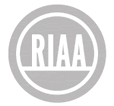The Difficulties of Distribution in Boycotting the RIAA 17 years, 6 months ago by Martey Dodoo

Starting in June 2005, I decided that I would no longer purchase music from bands who released albums on record labels that belonged to the RIAA. I have broken that promise, mostly because the RIAA is everywhere.
Take Downtown Records. On the "About" section of their official website, immediately after claiming that they are an "independent music label," they state:
Downtown is distributed by Warner Music's Alternative Distribution Alliance (ADA) and has a joint venture with Atlantic Records in North America.
But since Downtown, which includes mainstream artists like Gnarls Barkley, is not what most people think of when they think "indie record label," let us take a look at Sub Pop. The record label known for The Shins, Sleater-Kinney, Wolf Parade, Hot Hot Heat, Iron & Wine, and several other bands widely considered "indie," is, according to Wikipedia:
... 49% owned by Warner Music Group, one of the largest major record labels in the world. They own a 5% stake in the Alternative Distribution Alliance, with Warner Music Group owning the other 95%.
And what is this Alternative Distribution Alliance (ADA) we keep running into?
As one of the leading distributors of independent music in the U.S., Alternative Distribution Alliance (ADA) has delivered on its original mission statement: Give indie labels access to a flexible distribution system that marries the clout and convenience of a major with the marketing sensibilities of an independent.
While this sounds reasonable, I would feel better about the entire enterprise were it not owned by Warner Brothers.
Several years ago, when the company's growth warranted a move to new digs, ADA merged its warehousing operations with the Warner Music Group, which built a new facility to handle the output of both WEA and ADA. ''With the Warner backbone supporting us,'' says Allen, ''we have infinite flexibility, and the big records are just as easy to do as the small ones.''Headquartered in New York City, ADA has 16 branch offices and over 60 employees. Its current roster of labels includes, 4AD, Barsuk, Beggars Banquet Group, Comedy Central, Everfine, Epitaph, Fueled By Ramen, Kill Rock Stars, Matador, Metropolis, Minty Fresh, New Line, Oglio, Om, Polyvinyl, Punahele, Saddle Creek, Side One Dummy, Sub Pop, Surf Dog, Thirsty Ear, Thrill Jockey, Tommy Boy, Tomorrow, Touch And Go, Ubiquity, Vice, Wichita and XL Recordings.
What does that mean? It means virtually every supposedly "indie" record I have ever listened through came into my hands courtesy of Warner Brothers. From Clap Your Hands Say Yeah to everything by the Decemberists except their first release, 5 Songs (which incidentally, does not appear on their new website's discography page) to even releases by Asthmatic Kitty, which includes albums by Sufjan Stevens, it is clear that the majority of albums that I own that have a connection to the RIAA, regardless of the so-called "independence" of the publishing record label.
Back in 2005, I wrote:
This action is not about having an external effect. It is about resolving the internal hypocrisy I feel when I buy an album, only to find out later that the label is part of an organization that likes to sue college students, or the artist thinks filesharing and peer-to-peer are inherently evil.
I do not feel that hypocrisy anymore. This is not because graduating made me think that suing college students is a good idea, but because the existence of the ADA makes the entire enterprise doomed to failure. I could pursue alternative forms of protest, but my heart is no longer in this enterprise. RIAA, you have won this round.